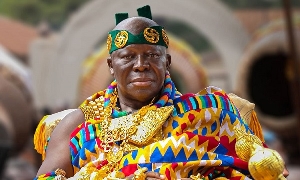Regional News of Wednesday, 21 March 2012
Source: William N-lanjerborr Jalulah
WANEP-Ghana interacts with Upper East journalists
on elections 2012…and inaugurates
Youth in Election Project
by William N-lanjerborr Jalulah
Journalism, they say, is the Fourth Estate of the Realm because of its enormous role
in the governance system of a country. Ghana is touted as the beacon of democracy in
Africa because of her democratic credentials, following successive and successful
elections since the advent of the Fourth Republic in 1992.
As the country gears up for another round of crucial general elections on December
7, 2012, all eyes are on media practitioners, because they have the mandate to
inform and educate the people, hence their information must be credible and
accurate. The education must also be timely and rich in content for the people to
benefit fully.
In order to refresh their minds and remind them of their core mandate ahead of the
presidential and parliamentary elections in December, the West Africa Network for
Peace-building (WANEP-Ghana), supported by the World Association of Christian
Communications (WACC) in Canada, has interacted with about 17 journalists and media
practitioners in Bolgatanga.
At a one-day seminar on the 2012 elections, the Programmes Officer of WANEP-Ghana,
Ms. Melody Azinim, said as the elections approach amidst various security
challenges, it is important adequate measures are put in place to minimise
elections-related violence, before, during and after the elections.
She said the network operates in seven regions – Northern, Upper East, Upper West,
Volta, Western, Brong-Ahafo, and Ashanti – with a membership of 116 organisations.
In every region, the network has a number of organisations that form a regional
chapter.
She appealed to the media to support the project by giving it the necessary
publicity on all its activities.
The media practitioners and the organisers had an interactive session, as the latter
poured out all their experiences and lessons in election reporting, including
challenges. Issues of attacks on journalists during elections, unprofessional
practices and misconducts were raised by the participants.
Some of the participants were of the view that the political parties’ commentators
and communicators do not talk to the issues that would bring about development, but
rather inflame passions and acrimonies among their members.
Derogatory statements should be avoided, especially during radio discussions, while
panelists on radio discussions are also to be mindful of their comments to avoid
inflaming passions among members.
They entreated WANEP-Ghana to impress on the National Media Commission, the security
agencies and civil societies to ensure that all the guiding principles, in the
interest of the nation, are adhered to by all politicians.
Some of the journalists suggested that the Ghana Journalists Association should also
be mandated to ensure that before someone practices as a journalist, and like
medical doctors, the person is assessed and given a license to practice.
Such licenses should be subject to periodic renewal, so that their conducts could be
monitored, and those who are found wanting, would have their licenses withdrawn.
Suggested issues include football matches among political parties, quiz competitions
on various political parties’ manifestoes to examine how much political parties’
members know about the manifestoes of others, and clean up exercises by all
political parties.
A data analyst at WANEP-Ghana, Mr. Albert Yelyang, advised journalists to have the
historical backgrounds of every area when reporting on elections. Thus, they would
avoid reportage that could lead to raising tensions among people.
A 10-member Inter-Party Youth Dialogue Committee, co-chaired by Mr. Edward Adeti and
Mr. Samuel Akologu, was inaugurated to implement programmes and activities of a
project dubbed, Youth In Election Project.
The project is being implemented in twelve communities in the country with
semi-autonomous chapters. Four of the communities are in the southern part of Ghana.
They include, Sunyani, Takoradi, Kumasi, and Ho, and are sponsored by the Canadian
High Commission.
The remaining six communities are in the Northern sector. They are Bawku and Tamale,
sponsored by Christian Aid and GIZ, Gushegu, Buipe, Bimbila, and Yendi, sponsored by
Ibis West Africa and the British High Commission, while Wa is being sponsored by the
Australian High Commission. Bolgatanga is sponsored by Strengthening, Transparency,
Accountability and Responsiveness in Ghana (STAR-Ghana).
Ms. Azinim said the objective of the project was to contribute to a reduction in
conflict and violence in Ghana. It operates with, and through, youth groups of the
political leaderships in the country, to ensure that the 2012 elections are
violence-free.










